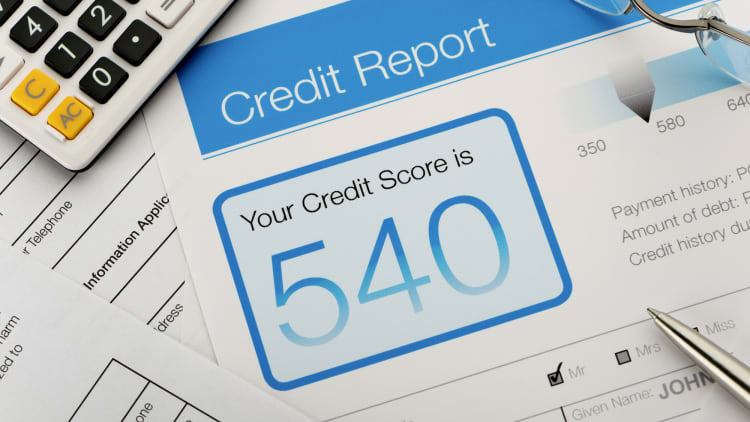Interest rate hikes have made financing a car pricier — especially if you have bad credit. How much you could pay
Tim Boyle | Bloomberg | Getty Images
Although prices for new cars are moderating a bit, financing a vehicle purchase hasn’t been getting any cheaper.
With the Federal Reserve’s latest interest rate hike — the sixth this year — auto loans are poised to become even more expensive. The Fed’s move has a ripple effect, generally causing rates to tick up on a variety of consumer loans and credit lines (and some savings accounts).
The average price of a new car is about $45,600, according to a recent estimate from J.D. Power and LMC Automotive. That’s down from a July peak of $46,173.
More from Personal Finance:
How investors can keep FOMO at bay
Tips to help stretch your paycheck
Here’s what it takes to build wealth
However, rising interest rates are still pushing up the overall cost for consumers who finance their purchase. The average rate on auto loans has increased from an average 3.98% in March to 5.60% in October, according to Bankrate.
And depending on a buyer’s credit score, the rate could be in the double digits.
“On a car loan, the difference between good and bad credit could equate to several hundred dollars per month,” said Ted Rossman, senior industry analyst at Bankrate.
Your credit score is one of several variables considered
The higher your credit score, the lower the interest rate you may qualify for.
This important three-digit number typically ranges from 300 to 850 and is used in all sorts of consumer credit decisions. Lenders also typically use information such as your income and other monthly expenses.
A good score generally is above 670, a very good score is over 740 and scores above 800 are considered exceptional, according to credit-reporting firm Experian. Scores below 670 are considered fair; anything below 580, poor.

The difference in the interest rate available across different credit scores can be stark.
Compare that to what someone whose credit score fell between 660 and 689 would pay. That same loan ($45,000 for five years) would come with an average rate of almost 9.4%, resulting in monthly payments of $942 and $11,514 in interest over the life of the loan. (See chart below for other credit scores.)
While it’s hard to know which credit score will be used by a lender — they have options — having a general goal of avoiding dings on your credit report helps your score, regardless of the specific one used, experts say.
“Many credit-building tips are more of a marathon than a sprint: Pay your bills on time, keep your debts low and show that you can successfully manage different types of credit over time,” Rossman said.
“That said, there are some things you can do to improve your score quickly,” he said.
Top tip: Lower your credit utilization
His top tip? Lower your credit utilization ratio. “This is the amount of credit you’re using on your credit cards divided by your credit limits,” Rossman said.
He said that even if you pay off your balances every month, the credit-reporting firms — Experian, Equifax and TransUnion — often receive balance data before you’ve paid it.
“It’s typically reported on your statement date, so consider making an extra mid-month payment and/or asking for a higher credit limit to bring your ratio down,” Rossman said.
Check for mistakes on your credit report
Additionally, he said make sure there are no errors on your credit report.
To check for mistakes and get a sense of what lenders would see if they pull your credit report, you can get a free copy from each of the three big credit reporting firms. Those reports are available for free on a weekly basis through the end of next year.
For all the latest Automobiles News Click Here
For the latest news and updates, follow us on Google News.

